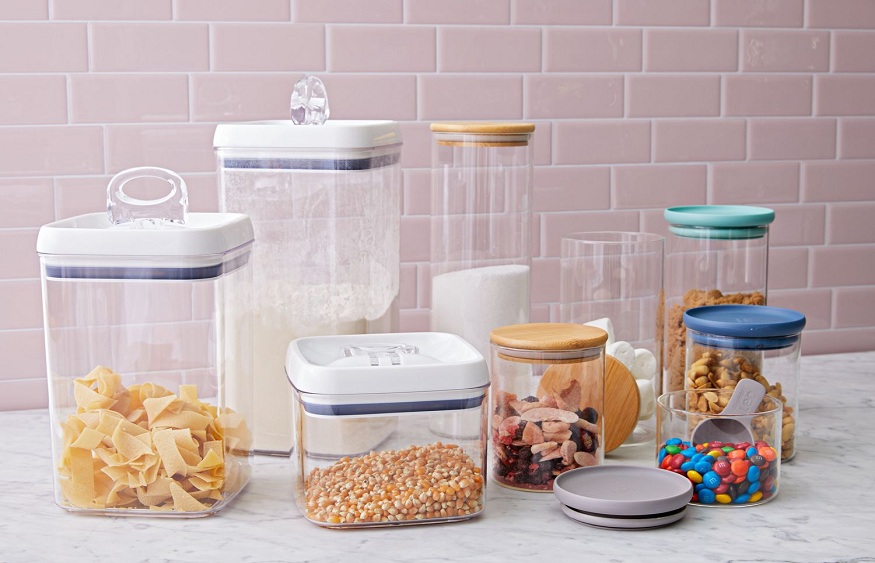The world has seen a rise in concern for environmental sustainability and conservation in recent years. Numerous sectors have been actively working to lessen their ecological footprint in response to this global call to action. One such notable advancement may be observed in the food packaging sector, where eco friendly disposable food containers have skyrocketed in popularity. These biodegradable containers are now the standard option for companies and people that want to encourage sustainable practices.
Biodegradable food containers are now widely available as a result of the growth in demand for environmentally friendly substitutes. These biodegradable packaging and serving choices are now being used by companies worldwide. These containers have the benefit of gradually dissolving over time, significantly decreasing the environmental impact. They are frequently made from renewable resources like cornflour, sugarcane, or bamboo. By implementing such procedures, companies provide a favourable image and help to further the general objective of preserving the environment.
The Environmental Effects of Traditional Plastic Containers
Despite being practical, traditional plastic food containers have adverse environmental effects. Due to the millions of tonnes of plastic trash dumped in landfills and oceans each year, plastic pollution has become a major global problem. These plastics take hundreds of years to disintegrate and emit toxic chemicals into the environment as they do so, endangering both animal and human health. Adopting environmentally friendly disposable food containers is a vital step in reversing this harmful trend and protecting our planet’s resources.
Benefits and Versatility of Eco-Friendly Disposable Food Containers
The many advantages eco-friendly disposable food containers provide have made them so popular. First of all, using renewable resources to manufacture these containers lessens our reliance on fossil fuels. Additionally, they produce less carbon, which lowers greenhouse gas emissions. Additionally, because these containers are adaptable and can hold a variety of foods, from hot soups to cold salads, they are perfect for restaurants, food trucks, and catering businesses.
A cost-effective and environmentally friendly option
The long-term advantages exceed the initial cost of biodegradable food containers, which may be slightly costlier than traditional plastic ones. The prices of these eco-friendly containers have decreased due to the rising demand for sustainable choices, making them affordable for companies of all sizes. Businesses that decide to employ biodegradable food containers can also draw eco-aware customers, increasing their brand reputation and customer loyalty.
Disposable paper cups are a step towards reducing plastic waste
Using disposable paper cups is another environmentally friendly option gaining popularity in the food and beverage sector. These cups provide a more eco-friendly way to serve beverages because they are frequently coated with biodegradable polymers. Millions of coffee cups are consumed daily worldwide; thus, switching from conventional plastic-lined cups to ones made of paper will significantly reduce plastic waste and encourage a cleaner environment.
Challenges in Adopting Eco-Friendly Practises
While the transition to biodegradable and eco-friendly disposable food containers is noteworthy, businesses still have some obstacles to overcome before fully implementing these practices. The initial cost of purchasing new packaging supplies and machinery may be too high for some people. Furthermore, the accessibility and availability of such containers in some areas may present logistical difficulties. However, these challenges can be overcome thanks to more awareness and rising demand, which will pave the way for a more sustainable future.
Consumer Education and Government Initiatives
Globally, governments are making tremendous efforts to encourage sustainability and lessen plastic waste. Bans on single-use plastics have been enacted in some places, enabling companies to find environmentally friendly substitutes. These legislative changes have increased the demand for disposable paper cups and biodegradable food containers. Consumers are actively searching for companies prioritising sustainability and eco-friendly practices as they become more environmentally concerned. Due to this shift in customer behaviour, companies are being forced to adapt and adopt green solutions to stay competitive.
Collaborative Efforts for a Greener Future
All stakeholders must work together to move the food packaging business toward sustainability. Manufacturers, businesses, consumers, and policymakers must support eco-friendly disposable food containers and biodegradable alternatives. The sector can benefit the environment and pave the road for a greener future by forging partnerships and exchanging best practices.
Promoting Sustainable Practises through Education
Education is crucial in the quest for sustainable practices. Consumers can become more environmentally conscious by increasing their knowledge of how their decisions affect the environment. Businesses may adopt a proactive stance by including information on eco-friendly disposable food containers and biodegradable alternatives in their marketing efforts. Consumers can be encouraged to make more environmentally friendly decisions via clear labelling and communication about the packaging materials used.
Technological Advancements Fuel Sustainability
New, environmentally friendly packaging options have been developed in large part as a result of technological advancements. Researchers and developers are constantly looking for substitutes that can perform similarly to conventional plastics while also being biodegradable. These advancements, which range from plant-based bioplastics to edible food containers, are laying the groundwork for a more sustainable packaging industry.
Government Assistance and Incentive Programmes
Governments worldwide support companies switching to eco-friendly practices because they understand how urgent it is to address environmental challenges. Companies are encouraged to invest in biodegradable food containers wholesale and other environmentally friendly alternatives by incentives, including tax rebates, grants, and subsidies for adopting sustainable packaging options. Policy interventions such as extended producer responsibility (EPR) programs are also being implemented to hold companies accountable for the end-of-life management of their packaging materials.
The Power of Choice and Consumer Behaviour
The growing understanding of environmental issues has significantly impacted consumer behaviour. Nowadays, more people are actively looking for companies and goods that share their ideals of sustainability. Businesses prioritising sustainable practices are gaining a competitive edge as consumer demand for eco-friendly solutions rises. Businesses not only draw on a broader consumer base by providing environmentally friendly disposable food containers and biodegradable packaging but also develop a strong brand image as good environmental stewards.
Conclusion
The growing acceptance of sustainability globally is evidenced by the rising use of biodegradable food containers, paper cups, and eco-friendly disposable food containers. As companies and individuals continue to use these environmentally friendly substitutes, they help to protect our planet’s natural resources and cut down on plastic waste. By making good decisions today, they can create a more sustainable and ecologically aware future for future generations.



